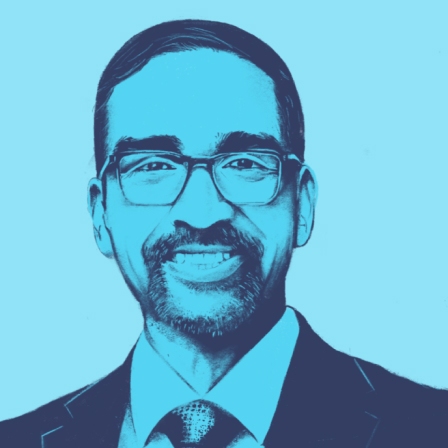What is People Ops?
The world of work has forever changed. Between the pandemic and the rise of the open talent economy, 80% of business owners say work will never be the same. Now, we need to tackle new challenges: How to manage distributed workforces? How to encourage connection and collaboration? And how to drive employee productivity from anywhere.



Soo... what exactly is People Ops ?
We're moving from an IT-driven economy to a people-driven economy. The value of technology has been proven over the last 10 years, and now the competitive advantage lies in our ability to unleash our employees to maximum potential.
By automating traditional HR processes, POPS shifts attention from tactical administrative work to people and productivity. People Ops is responsible for designing a great employee experience with pivotal people moments that make work exciting, rewarding and engaging for your team.
The 120 year path towards People Ops and Perfect Work














The Shift to People Ops
Traditional HR was focused on tracking employees, enforcing rules, and ensuring compliance. People Ops is focused on maximizing business results and optimizing workforce productivity by making work exciting, rewarding and engaging.

- Process
- Administration
- Activities
- Tracking
- Instinct
- HRIS
- People
- Operations
- Outcomes
- Experience
- Data
- POPS Platform
- Process
- Administration
- Activities
- Tracking
- Instinct
- HRIS
- People
- Operations
- Outcomes
- Experience
- Data
- POPS Platform
- Process
- Administration
- Activities
- Tracking
- Instinct
- HRIS
- People
- Operations
- Outcomes
- Experience
- Data
- POPS Platform
The future of work is here, and we aren't going back. Fueled by an era of ubiquitous technology access; massive shifts in work expectations from Gen Z and Millennials; increasing automation of jobs; and a rise of the open talent economy the question is no longer: "how will technology shape the future?" But is: "how will people use technology to make their greatest impact?"
People Operations rises to this new-age question. It operationally creates opportunity for businesses to create competitive advantage through human capital management in a technology-assumed age.
Like the best business functions, People Ops is operationally forward. It focuses on helping achieve business priorities through combining the power of people with data, insights, and automation. People Ops favors outcomes over activities — "points, not yards."


Here are the key factors in this shift from HR to People Ops
Your World with People Ops
If you want to build a great company, start with your own people. The People Ops approach is a win-win-win. It’s a win for your business. It’s a win for your employees. And, it’s a win for your people team. Let’s take a look at why.



Our People Ops Recipe
The People Ops methodology — aka "The ABC's of People Ops" — is the recipe to automate HR, design a great employee experience, and unleash the workforce. When your people are at their best, your business is too. It's the ultimate force multiplier

Automate administration
and compliance
Make the stuff you have to do easy. Easy for you, your managers, and your employees. Use technology to "declutter" and eliminate as much busywork as possible. This means going completely digital.
Build a great employee experience
Start from within with pivotal people moments that matter. Employee listening, open communication, and transparency are foundational. Consider flexibility, learning, recognition and wellbeing in order to build a strong organizational culture.
Create workforce productivity
Build a high-performance, high-energy culture that motivates the entire workforce to achieve new heights. Embed clearly defined goals, feedback loops and motivators into daily workflows. Improve workplace collaboration, engagement and mobility.
Drive growth & profitability
Moving from anecdotes and instinct to data and KPI's - across the employee lifecycle - is key to measuring progress and outcomes. Being data-driven is foundational to the People Ops movement and how to demonstrate value to the rest of the business.
Automate administration
and compliance
Make the stuff you have to do easy. Easy for you, your managers, and your employees. Use technology to "declutter" and eliminate as much busywork as possible. This means going completely digital.
Build a great employee experience
Start from within with pivotal people moments that matter. Employee listening, open communication, and transparency are foundational. Consider flexibility, learning, recognition and wellbeing in order to build a strong organizational culture.
Create workforce productivity
Build a high-performance, high-energy culture that motivates the entire workforce to achieve new heights. Embed clearly defined goals, feedback loops and motivators into daily workflows. Improve workplace collaboration, engagement and mobility.
Drive growth & profitability
Moving from anecdotes and instinct to data and KPI's - across the employee lifecycle - is key to measuring progress and outcomes. Being data-driven is foundational to the People Ops movement and how to demonstrate value to the rest of the business.




Average Score
People Ops.
The People Ops Maturity Model
30% of employees say their company doesn't understand what motivates them. Connect with your employees in ways that drive motivation.
Based on our work with over 30,000 small and midsize businesses, it helps a company assess, develop and refine their people programs. In short, it helps us look at ourselves now, and also see what could - or should - be. And, how to get there.
Get Your Maturity Model ScoreThe People Ops Book
Authors Jay Fulcher, Kevin Marasco, Tracy Cote of Zenefits, the leading People Operations platform, provide readers with a playbook for creating a massive competitive advantage by eliminating antiquated approaches to HR.
The book takes a look at how work has changed and what companies need to do about it, and the new approach they must take to processes, systems, and best practices. You'll learn how to eliminate busywork and hassle, and how to use that newfound time and capital to empower your biggest asset: your people.
grab your copy
The People Ops Podcast
Work just changed. 79.8% of small business leaders say the pandemic has permanently changed the way their people and their companies work.
The POPS! Podcast shares fresh thinking, examples and answers to build your people and your business in the new world of work.
browse episodes
Subscribe on:
Take the first step in becoming a People Operations department. Automate HR.
Zenefits automates hiring, onboarding, pay, PTO, benefits and more.
- Free Demo
- No credit card needed
- No Setup




